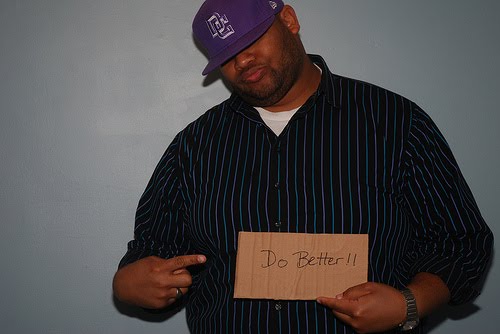(the following commentary is in response to The Washington Post
profile of Helena Andrews written by DeNeen L. Brown)

Taming of the Shrew by Levi F. Daniels
“Bitch Is the New Black”, the literary and cinematic brainchild of Ms. Helena Andrews, claims to provide insight into the mind of the upwardly mobile, more than sufficiently educated black woman. But if the interview with the author is any indication, neither piece will hold up to even marginal scrutiny. And what’s worse, will do less to debunk a given archetype than it will to add yet another to the pantheon of one-dimensional black female caricatures.
The version of Black women presented in the article is a take no prisoners, maven of the corporate world, whose tragic flaw (because every hero must have one) is their inability to locate a suitable suitor. The acknowledgement of her plight is followed by an existential inquiry; why? Why is it that someone who seems to have everything, can have something as simple as love, elude her grasp. The story sounds both heart warming and star-crossed.
So I dig a bit deeper in hopes of discerning the poor woman’s standards. Surely she can’t want that much. Alas, I was right. In the article she mentioned academic qualifications, automobiles and professions. Dating this woman was beginning to sound more like a job listing than a romantic engagement. It’s no wonder she hasn’t been able to connect with any one she’s dated, she doesn’t seem to have any discernable interests one could connect. I would liken the experience to a treadmill, you certain feel as if you gone somewhere but ultimately you end up where you started.
Of course it should be noted that the concerns of Black women are not without merit. As more and more of them outpace their counterparts in the acquisition of undergraduate degrees, let alone more advanced degrees, they may find themselves experiencing increased difficulty connecting on equal ground intellectually with the opposite sex. But, the problem is only exacerbated when one party seems to completely eschew meaningful innate qualities for material acquisition and one-note facades.
Which leads me to another portion of the author’s diatribe. In addition to bemoaning the romantic plight of the buppie woman, she does take the time to identify at least one source of their angst, in the landmark sitcom The Cosby Show. In this companion segment, she talks about the ideal of Claire and Heathcliff Huxtable, alluding to their academic, professional, and financial successes. She asserts that she and women like her yearn for the doctor to accompany their lawyer, the house, the children, and ultimately happiness.
However, I think she misses some key nuances of the show and it is that oversight that only further impedes her romantic progression. To be sure, Heathcliff Huxtable was not always the high earning OBGYN that Claire married. In college he bumbled, erred, and spoke without thinking. These instances would form the basis for many of her best anecdotes about him. Yet her stories offered other insights that stood juxtaposed to his shortcomings. He was also persistent, steadfast, earnest, and honest. No doubt, lovable qualities Claire came to appreciate and highlight.
In essence, I suppose I would hope for more intrinsic qualities to be sought out by both males and females, maybe then we might begin to establish deeper, more substantive bonds and end the cycle of blame that plagues both parties.
– Levi F. Daniels

Right on, Levi. While I admittedly am looking forward to a book and movie about the young, black & female professional–my very own Sex & The City–i was taken aback in the same way you were in terms of Ms. Andrews' expectations of a potential mate. It was quite clear to me why she didn't have a man. I was particularly turned off by her girlfriend's conversation about a man one of them went out with who they referred to as "Cornrows." It seems simple to me–you have to give respect to get respect, and can never think that your own sh*t don't stink. Dating and finding a mate is all about being open, vulnerable and caring. It has NOTHING to do with material possessions.